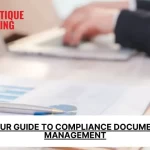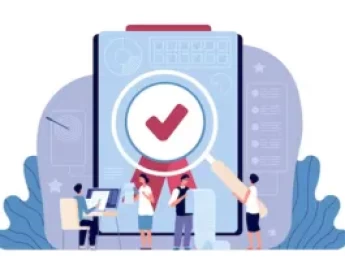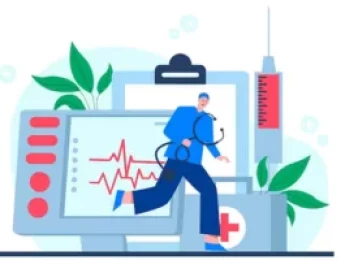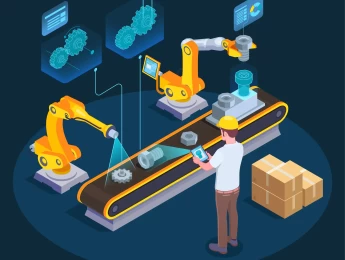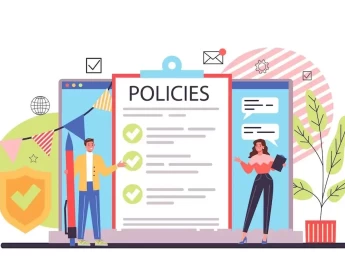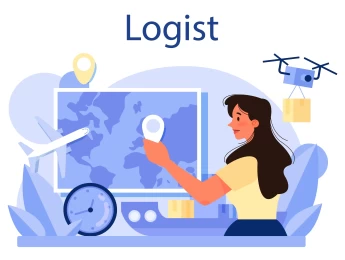Businesses across all sectors need to acquire an accurate and reliable record-keeping system to maintain data and mitigate risks in audit processes and procedures. In the oil and gas industry, document management is essential for monitoring health and safety concerns, auditing processes, and changing the framework based on product development and the worldwide market.
To stay ahead of the game, it’s important to understand the best systems and techniques for implementation that can improve the workforce's productivity and make information accessible and available at a moment’s notice. These systems must be secure and impenetrable but also allow for the monitoring and managing of quality procedures and workforce tracking.
Disaster recovery, continuity planning, staff management and product management also all require guidance and audit trails to develop an effective trending matrix. The constantly updated and maintained documents can tell you a lot about your organisation and even help you predict future trends to stay ahead of competitors and protect what you have to offer. These documents must also be available to future investors or partners to display your profits and costs for planned projects. Managing your documents effectively will help these external parties understand more about your organisation as a whole, building trust and mutually beneficial relationships.
Upon completion of this course, participants will be able to:
- Understand the challenges in the implementation of various document management systems.
- Assess the security levels required in your organisation.
- Develop a clear process to maintain and manage your current documents.
- Recognise the key components of good record-keeping.
- Train employees in the importance of document management.
- Communicate risks effectively and assign auditing responsibilities.
- Discuss governance and make changes to your current processes to accommodate.
- Acquire practical and theoretical knowledge regarding quality control and metadata protection.
- Develop effective quality assurance procedures.
- Utilise Enterprise 2.0 to make a positive impact on productivity.
- Build a formal Information Management Strategy that works for your organisation.
This course is designed for people involved in the management and maintenance of documents or in managing security risks throughout an organisation. It would be most beneficial for:
- Project Managers
- IT Professionals
- Administration Professionals
- HR Personnel
- Business Owners
- Auditors
- Risk Assessors
- Data Analysts
- Operations Managers
- Legal Representatives
- Finance Personnel
This course uses various adult learning techniques to aid full understanding and comprehension. Participants will review security videos and presentations to understand the importance of good record-keeping and document management.
They will review various systems and platforms to help with document management, which allow remote working access at the highest security level. Participants will also work together to discuss the types of records and documents required in the oil and gas industry and understand how these documents aid the development of the business as a whole.
Day 5 of each course is reserved for a Q&A session, which may occur off-site. For 10-day courses, this also applies to day 10
Section 1: Documents & Data within the Oil & Gas Industry
- Your geographical responsibilities.
- Managing your people and processes.
- Electronic document management.
- International Standards and Your Obligations.
- Data Quality.
- ISO audit management.
Section 2: Record Management
- Your file plan and classification.
- Retention and disposal processes.
- Vital records management.
- Updating your storage solutions.
- ISO 15489 and ISO 30300.
- Corporate file planning.
- Implementation frameworks.
Section 3: Quality Assurance
- Data quality management.
- Highlighting errors and assessing integrity.
- Data quality assessments and fixes.
- Metadata standards.
- Creating your 8-point action plan using new technologies.
Section 4: Continuity Planning & Disaster Recovery
- Your vital records.
- Your obligations under legislation.
- Monitoring your document maintenance.
- Quality compliance and assigning accountability.
- Knowledge management and cross organisation communication.
- Risk assessments and restructuring after disasters.
- Creating a solid continuity plan.
Section 5: Enterprise 2.0
- The best collaborative tools.
- Essential tools and techniques.
- e-collaboration tools and social computing.
- Barriers and challenges to change.
Section 6: Knowledge Management
- Auditing and knowledge exchange matrices.
- Reviewing your operation.
- Communicating health and safety essentials.
- Recording and monitoring document change.
- Developing a knowledge base across multiple sites.
Section 7: Cost-Benefit Analysis
- Saving types and budgeting assessments.
- Understanding the benefits of document management.
- Cashable benefit systems.
- Dependency and recovery budgeting and management.
Section 8: Your Information Management Strategy
- Your information security processes.
- What information needs to be documented?
- Refresh data and recording.
- Your IM strategy.
- Practical change management.
Upon successful completion of this training course, delegates will be awarded a Holistique Training Certificate of Completion. For those who attend and complete the online training course, a Holistique Training e-Certificate will be provided.
Holistique Training Certificates are accredited by the British Assessment Council (BAC) and The CPD Certification Service (CPD), and are certified under ISO 9001, ISO 21001, and ISO 29993 standards.
CPD credits for this course are granted by our Certificates and will be reflected on the Holistique Training Certificate of Completion. In accordance with the standards of The CPD Certification Service, one CPD credit is awarded per hour of course attendance. A maximum of 50 CPD credits can be claimed for any single course we currently offer.
- Course Code IND01-131
- Course Format Classroom, Online,
- Duration 5 days


